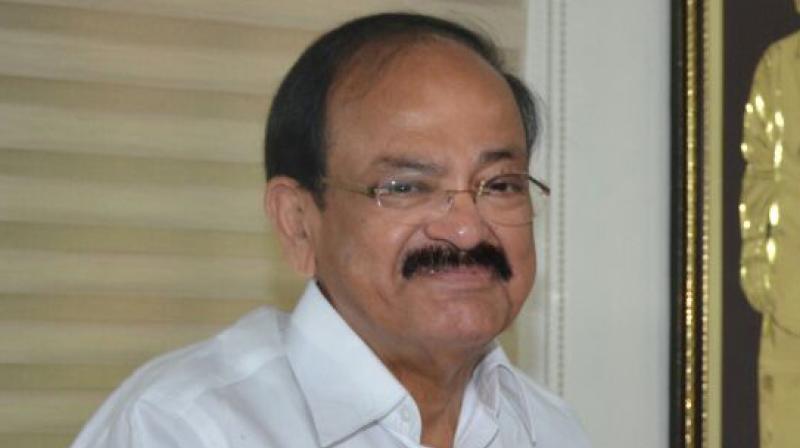Hike productivity of pulses, says M Venkaiah Naidu

Vijayawada: Vice President of India M. Venkaiah Naidu called for increasing the acreage and productivity of pulses for achieving self-sufficiency and urged agricultural universities to step up research on improving their yields. Speaking at the inaugural session of the All India Coordinated Research Group’s Annual Group Meet on MULLaRP & Arid Legumes workshop at Guntur on Sunday, Mr Venkaiah Naidu said there was a need to introduce high-yielding, disease and pest-resilient seed varieties. He asserted the need of improving crop production techniques and bringing additional fallow lands under pulse production.
Pointing out that pulses were an inexpensive source of plant-based proteins, vitamins and minerals for people, Mr Venkaiah Naidu said that pulses provide green, nutritious fodder for animals and also enrich the soil through biological nitrogen fixation. “Some legumes are known to have medicinal and therapeutic properties also. Hence, they are rightly termed as “Unique Jewels” of Indian crop husbandry," he added.
Observing that legumes were an essential component in the Indian cropping pattern, especially in dry land farming, Mr Venkaiah Naidu said India was the world’s largest producer, accounting for 34 per cent of the area and 24 per cent of production followed by Myanmar, Canada, China, Nigeria, Brazil and Australia. Referring to his recent visit to Vietnam, he mentioned the crop production differentials between India and Vietnam. He said that Vietnam produces 5 tons of rice per hectare and 1.5 tonne of soya bean per hectare, while India produces only 3 tons of rice per hectare and one ton of soya bean. He explained that while the average productivity of pulses has increased to 841 kg per hectare, it is well below the global average and in some states, the yield is much higher as compared to others. He asserted the need to learn from best practices from around the world and within the country to improve crop productivity.
Mr Venkaiah Naidu said that universities, Krishi Vigyan Kendras (KVKs) and government must come together with long term strategies for producing new high yielding varieties, which are resilient to diseases and climate change. There was also a need to create value addition and proper marketing facilities for pulses. Saying that climate change was adversely impacting marginalized people in dryland areas due to shifts in moisture and temperature regimes, he called for a new paradigm in agricultural research that makes full use of science and technology in conjunction with traditional knowledge to cope with the challenges of climate change and achieve food and nutritional security.
Mr Venkaiah Naidu said that water shortage was becoming a serious problem and was getting compounded due to population growth and climate change. He called for developing crops that use less water. Underscoring the important role of pulses in promoting a healthy diet, Mr Venk-aiah Naidu cautioned people, particularly youth against eating junk food in the wake of a growing incidence of non-communicable diseases.
The three-day event was jointly organised by the Acharya NG Ranga Agricultural University and the Indian Council of Agricultural Research (ICAR).
The DDG (CS), ICAR, Dr A.K. Singh, Vice Chancellor of ANGRAU, Dr V. Damodara Naidu, Director, ICAR-Indian Institute of Pulses Research, Kanpur and other dignitaries were present on the occasion. Dr. N.P. Singh, Director of Research of ANGRAU, Dr. N V Naidu and other dignitaries were present on the occasion. (450w-ilyas)

